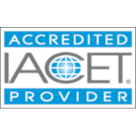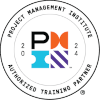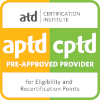Product Details
Topics Covered
- Bargaining vs. negotiation
- Interests vs. positions
- BATNA
- Thompson's 5 Mental Models
- Importance of preparation
- Setting goals
- Opening positions
- Relationships vs. outcomes
- Making commitments
- When to walk away
- Multiparty negotiations
- Cross-cultural negotiations
Key Features
- Mobile-friendly
- Audio-enabled
- Badge and credit-awarding
- Real-world case studies
- Fully accessible
- Games & Flashcards
- Expert-supported
- Video content
Course Preview
Course Description
Learning Outcomes
- Distinguish between Dispute Settlement Negotiation (DSN) and Deal Making Negotiation (DMN)
- Explain the importance of BATNA in Deal Making Negotiation
- Describe the relationship between bargaining and negotiation
- Distinguish between interests and positions, and describe the importance of each
- Explain the five steps of the negotiation process
- Identify the types of information that should be assembled prior to negotiation
- Describe the five principal approaches to negotiation
- Identify the two types of commitments, and explain how they affect negotiating flexibility
- Explain the importance of the opening position
- Describe Leigh Thompson's mental models of negotiation
- Explain the importance of active listening in the context of Deal Making Negotiation
- Identify the challenges posed by multiparty negotiations, and describe strategies for meeting those challenges
- Describe the circumstances under which a negotiator should call for a timeout, and when she should walk away from a negotiation
- Explain the additional preparations needed before undertaking international or cross-cultural negotiations
- Apply the principles of Deal Making Negotiation to real-world examples
Notes
This course has an "Ask the Expert" feature, which submits your questions directly to an expert in the field you are studying. Questions are answered as quickly as possible and usually within 24 hours.
As an Accredited Provider, MindEdge offers for its learning events that comply with the Continuing Education and Training Standard.
Learners must achieve an average test score of at least 70% to meet the minimum successful completion requirement and qualify to receive credit. Learners will have three attempts at all graded assessments.
Project Management Institute, , the Registered Education Provider logo, Project Management Professional, , Project Management Body of Knowledge, , Agile Certified Practitioner, -, Risk Management Professional, -, the Talent Triangle, and the Talent Triangle logo are marks of the Project Management Institute, Inc.
Information in this course has been taken from A Guide to the Project Management Body of Knowledge, (® Guide) - Sixth Edition, Project Management Institute Inc., 2017.
The following list outlines the you will earn for completing this course, based on the certifications you have.
CAPM®/PMP®/PgMP® |
|---|
| Ways of Working PDUs: 1.25 |
| Power Skills PDUs: 0.5 |
| Business Acumen PDUs: 2.25 |
| TOTAL: 4 |
PfMP® |
|---|
| Ways of Working PDUs: 0 |
| Power Skills PDUs: 0.5 |
| Business Acumen PDUs: 2.25 |
| TOTAL: 2.75 |
PMI-ACP® |
|---|
| Ways of Working PDUs: 0 |
| Power Skills PDUs: 0.5 |
| Business Acumen PDUs: 2.25 |
| TOTAL: 2.75 |
PMI-PBA® |
|---|
| Ways of Working PDUs: 0.25 |
| Power Skills PDUs: 0.5 |
| Business Acumen PDUs: 2.25 |
| TOTAL: 3 |
PMI-RMP® |
|---|
| Ways of Working PDUs: 0.5 |
| Power Skills PDUs: 0.5 |
| Business Acumen PDUs: 2.25 |
| TOTAL: 3.25 |
PMI-SP® |
|---|
| Ways of Working PDUs: 0 |
| Power Skills PDUs: 0.5 |
| Business Acumen PDUs: 2.25 |
| TOTAL: 2.75 |




